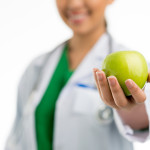By David Blyweiss, M.D., Advanced Natural Wellness
March 16, 2015
- Faulty sugar guidelines have me baffled
- What the confusion is doing to your health
- My recommendation
When you were younger, you probably didn’t pay much attention to what you ate, just as long as it tasted good. And the more sugar it contained, the yummier it was, right? Well, things change. These days, you’re probably paying a lot of attention to the amount of sugar you consume, and trying to ditch it wherever you can.
But it’s not just the sugars you add to your own foods that you need to watch out for. There are also “added” sugars in a lot of the foods you buy. These are the sugars the food manufacturers intentionally put into their products.
Now it’s true that junk food and soft drinks are key culprits when it comes to getting extra sugar in your diet. But you’ll also find added sugars in healthy-sounding foods like protein bars, fruit juice, yogurt, granola and others. Even protein powders and health drinks often contain added sugar or fructose!
It’s become such a problem that these days that if you are an average eater, you probably consume somewhere between 80 and 96 pounds of added sugar each year.
But the question that nobody seems to have the correct answer for is this: “How much sugar is too much?”
MD Exposes the Hidden Danger to Your Eyes

When your eyesight starts to fail, it's a real problem. Suddenly you can't go to the grocery store... you can't get to the doctor if you have an emergency... you can't meet your friends for dinner…
Your "regular" doctor doesn't have time to keep up with the latest research. And the same goes for eye doctors. They go to school to learn how to fit you for glasses and contacts, but have no way of preventing the damage and loss of eyesight that threatens your freedom and independence.
Let me show you something that explains a LOT about how your eyes work.
In my FREE Special Report, I'll show you a HUGE, untapped resource for your eyes that safely and naturally restores clear, effortless eyesight.
Click here to get started...
Now, if you listen to the Institute of Medicine, they recommend that added sugars should account for no more than 25% of your daily calories. Yes, you read that right. Twenty-five percent – a whopping quarter of your daily calories!
This is a baffling number. If you take this recommendation to heart, it means if you consume 2,200 calories each day, up to 550 calories could come from added sugars. That’s equal to about 33 teaspoons of sugar a day.
And if you listen to the USDA recommendation, it sounds a little better, but it’s very vague. Their suggestion is that no more than 15% of calories should come from solid fats and added sugars. It looks like they’ve lumped these two together into a single category. It’s confusing, and not very helpful.
So how are you to decide?
Let’s take a look at the chaos this confusion might be inflicting on your health…along with my recommended answer to the amount of added sugars you should be getting in your diet.
First off, sugar and high fructose corn syrup are fueling the epidemic of type 2 diabetes. Currently about 26 million people in the U.S. have this disease. Another 79 million people are pre-diabetic.
But if you were to get a quarter of your daily calories from added sugar… well, it wouldn’t take long before you would become a full-blown diabetic. With numbers like that, we would literally quadruple the number of diabetics in the U.S.
Secondly, people who consume the most added sugars have worse triglyceride and cholesterol profiles.
If you get more the 10% of your daily calories from added sugar, your HDL (good) cholesterol is probably suffering for it. This may be why people who consume the most added sugars are almost three times more likely to die from cardiovascular disease.
The World's Quickest Solution for Ending Prostate and Urinary Misery
This has recently been revealed to be one of the only real breakthroughs in prostate health.
The seeds of a strange fruit (sometimes called "Chinese Apples") hold powerful phytonutrients that are a revolution in prostate health.
In fact, UCLA and Veterans Administration research have now proved this to be true.
Not only that, but it may be the worlds quickest solution for ending prostate misery.
Simply stated, these phytonutrients represent a huge step beyond beta sitosterol, saw palmetto, and other phytosterols alone.
Simply click HERE if you want to have fast prostate relief...restful, uninterrupted sleep...no more constant "urges to go"...enhanced virility...and optimal prostate support for life.
Third, fructose intake, in particular, is associated with nonalcoholic fatty liver. This is a disease that can lead to inflammation, scarring and even cirrhosis. It turns out that patients with this liver disease consume two to three times more fructose than those without it.
Additionally, sugars tend to feed cancer cells. Fructose, in particular, sets off a chain reaction called “aerobic glycolysis” in the body that that fuels the growth of aggressive types of cancer. It also increases oxidative stress, promotes inflammation, damages DNA and alters cellular metabolism – all of which are linked to cancer growth.
That’s enough of the bad news. Let’s take a look at the good news, and see how we can cut some of those sneaky added sugars from your diet.
If I were to make a recommendation on the amount of added sugars that should be in your diet, the answer would be zero. They have absolutely no nutritional value. All they do is make you fat, sick and weak.
However, I know that’s not realistic in today’s world. Still, keeping them at or below 5% of your daily calories should be doable if you know what to watch out for.
Sodas, pastries, candies and other junk food are obvious sources of added sugars. You already know to avoid these. Still, there are plenty of foods that might sound like they should be healthy, but aren’t.
For example, you might be eating more salads, yogurt and whole-grain bread. You may have ditched the cereal for a high protein breakfast bar…and swapped out your soda with fruit juice. Well, here’s the scoop…
Salads are great, but what you put on them counts. Just two tablespoons of some salad dressings contain eight to 10 grams of sugar. And most people I know put a lot more than two tablespoons on their salads. They’re easily getting 50 grams of sugar in a heartbeat. Make your own dressing using olive oil, herbs, spices and a dash of balsamic.
Swap out your yogurt. Fruit-flavored yogurts typically have a high sugar content. Some of them even contain high fructose corn syrup (HFCS). Switch to plain Greek yogurt, and then sweeten it up yourself with your favorite fruits and a bit of organic honey. If you add nuts and seeds, it can also make a great replacement for your morning cereal or breakfast bar.
Trade in your whole grain bread, too. Most of the grains we eat today aren’t anything like the ones your ancestors ate. All the nutrition is processed out of them. They’re fattening, inflammatory and shoot your blood sugar up. Plus, many whole-grain products – including bread – are loaded with sugar and HFCS to make them taste good. Instead, try an organic millet bread that doesn’t have any added sugars.
Fruit juice can contain as much sugar as soda. Even though juices contain more nutrients than soda, they are also high in natural sugar. Plus, many of them contain added sugar or HFCS. The problem here is that when you ingest the juice without the fiber of the fruit, the sugar is immediately released into your bloodstream. Instead of juice, try a glass of ice-cold, filtered water topped off with citrus fruit, berries, kiwis or a just a small splash of your favorite juice.
Sources:
Welsh JA, et al. Caloric sweetener consumption and dyslipidemia among US adults. JAMA. 2010 Apr 21;303(15):1490-7.
Yang Q, et al. Added sugar intake and cardiovascular diseases mortality among US adults. JAMA Intern Med. 2014 Apr;174(4):516-24.
Ouyang X, et al. Fructose consumption as a risk factor for non-alcoholic fatty liver disease. J Hepatol. 2008 Jun;48(6):993-9.
Port AM, et al. Fructose consumption and cancer: is there a connection? Curr Opin Endocrinol Diabetes Obes. 2012 Oct;19(5):367-74.
Liu H, et al. Refined fructose and cancer. Expert Opin Ther Targets. 2011 Sep;15(9):1049-59.






